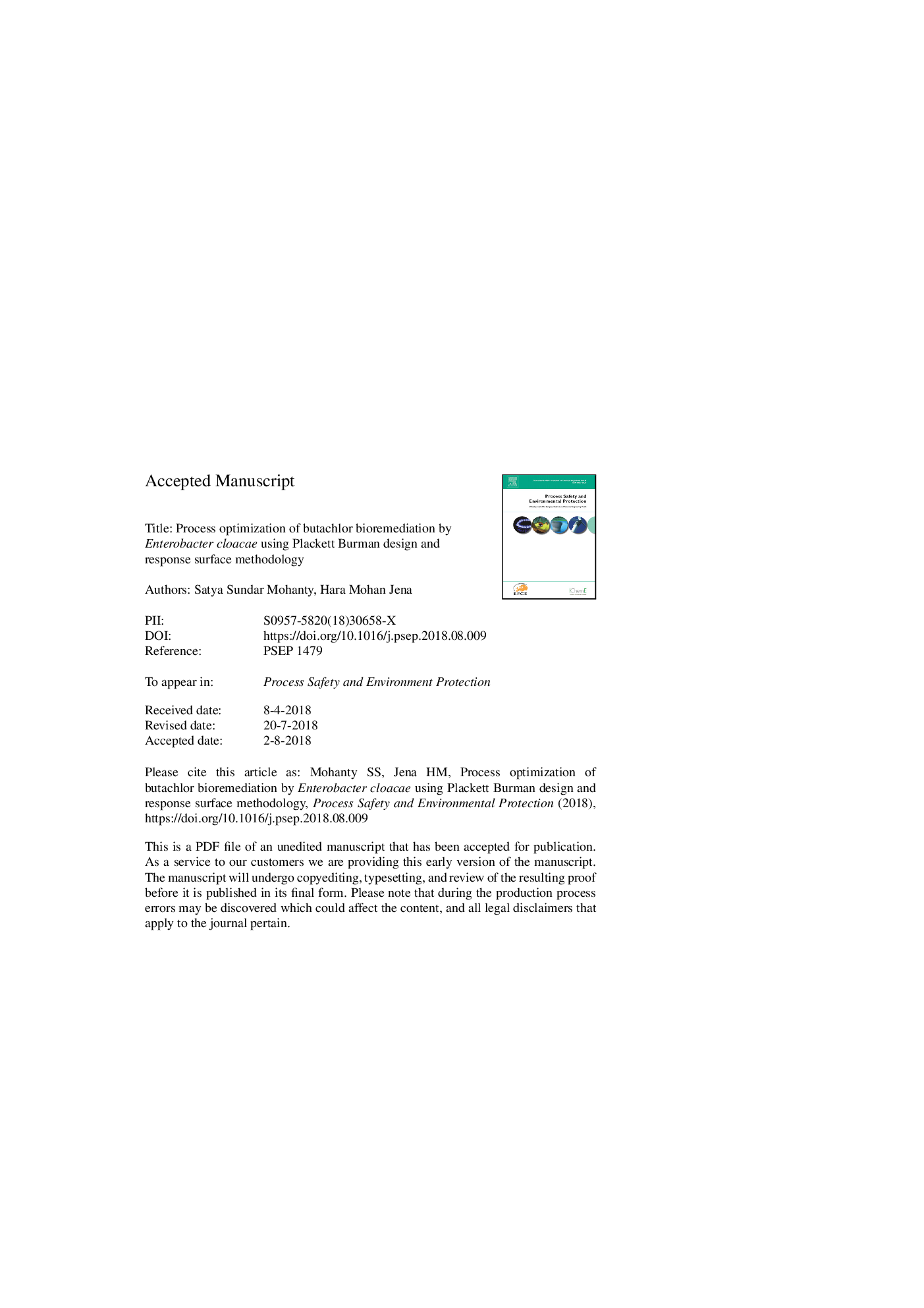| Article ID | Journal | Published Year | Pages | File Type |
|---|---|---|---|---|
| 6973836 | Process Safety and Environmental Protection | 2018 | 35 Pages |
Abstract
The present study was undertaken to assess the biodegradation efficiency of native butachlor catabolizing bacterial strains isolated from the soil contaminated with the effluents from pesticide formulation units of Odisha, India. Butachlor, a chloroacetanilide class of herbicide, is widely used for the control of unwanted annual grasses and broadleaf weeds. The microbial strains designated as FP1, FP2 and FP4 showed better butachlor tolerance capability than the rest of the isolates. Out of these, the strain FP2 demonstrated the highest degradation efficiency and hence been subjected to morphological, biochemical and genetic characterisation. The bacterial isolate was identified as Enterobacter cloacae as per the 16âs rRNA gene sequencing. Two-step statistical approach was employed to optimised various parameters that affect the butachlor degradation efficiency of the bacteria. Parameters such as growth temperature, pH and media components were screened applying Plackett-Burman design and were optimised further by employing the response surface methodology. Fitting the experimental results via a second order quadratic polynomial equation having a correlation coefficient of 0.99 has been achieved. Under optimised conditions, the microbial strain was able to display a biodegradation efficiency of 1.67âmg/L/hr of butachlor. The obtained results proved the ability of the isolated strain to be used for the remediation of butachlor-contaminated effluents efficiently.
Related Topics
Physical Sciences and Engineering
Chemical Engineering
Chemical Health and Safety
Authors
Satya Sundar Mohanty, Hara Mohan Jena,
